Jupiter 2016
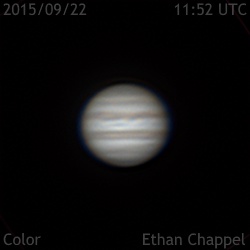
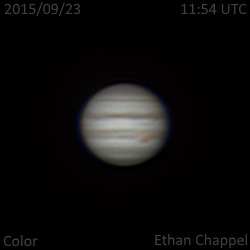
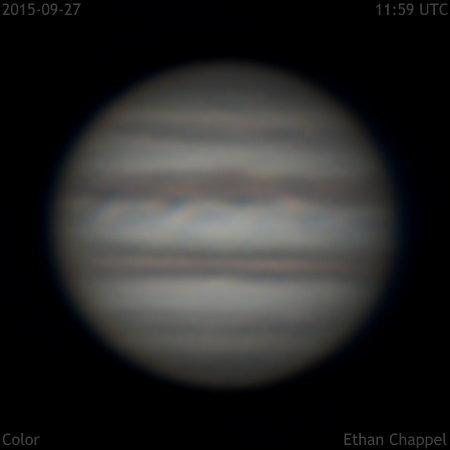
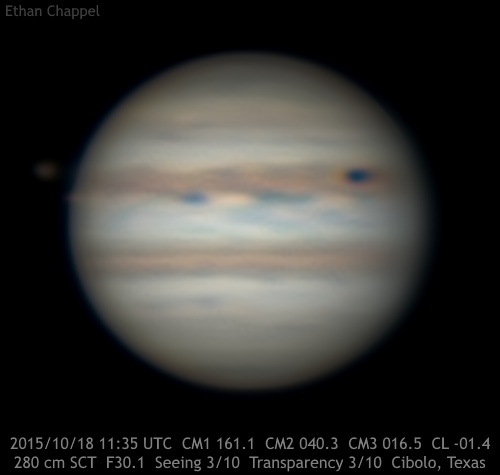
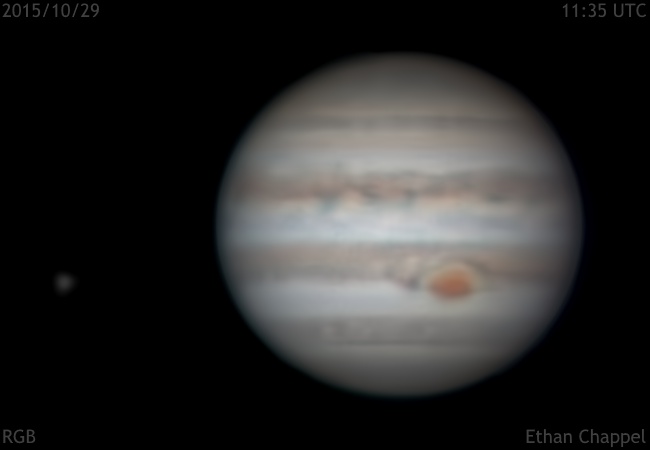
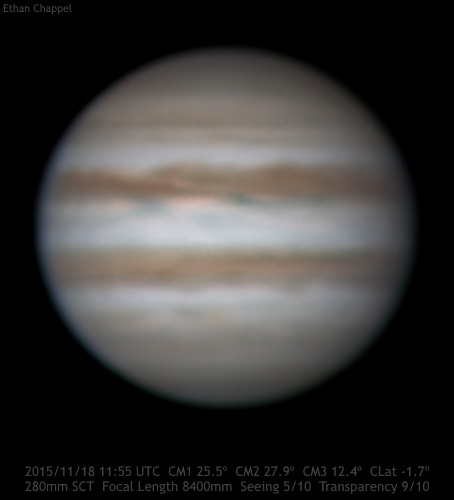
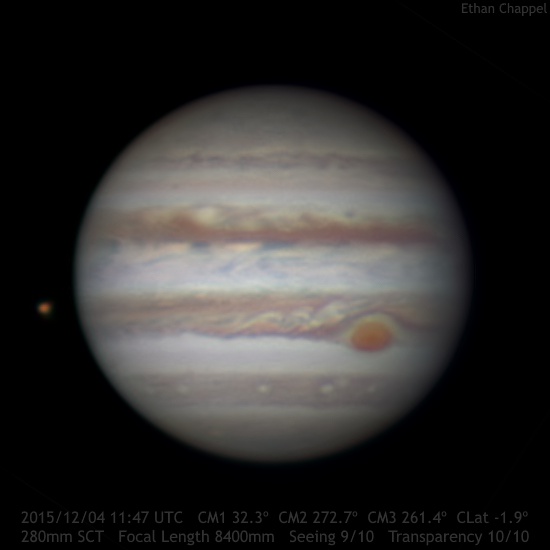
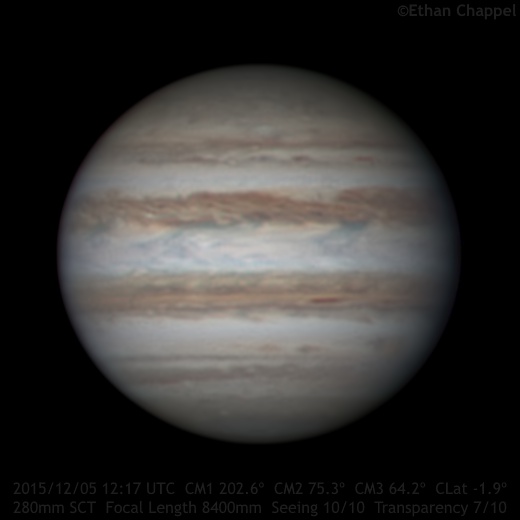
UTC
Stability was better than yesterday, but transparency wasn't as good due to very thin and wispy clouds. The NEB looks turbulent. There is a long barge on the SEB that I've heard is a result of a merger of two smaller barges. Oval BA is setting on the bottom right.
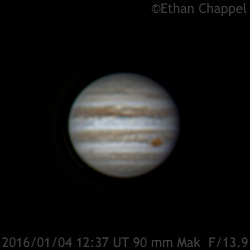
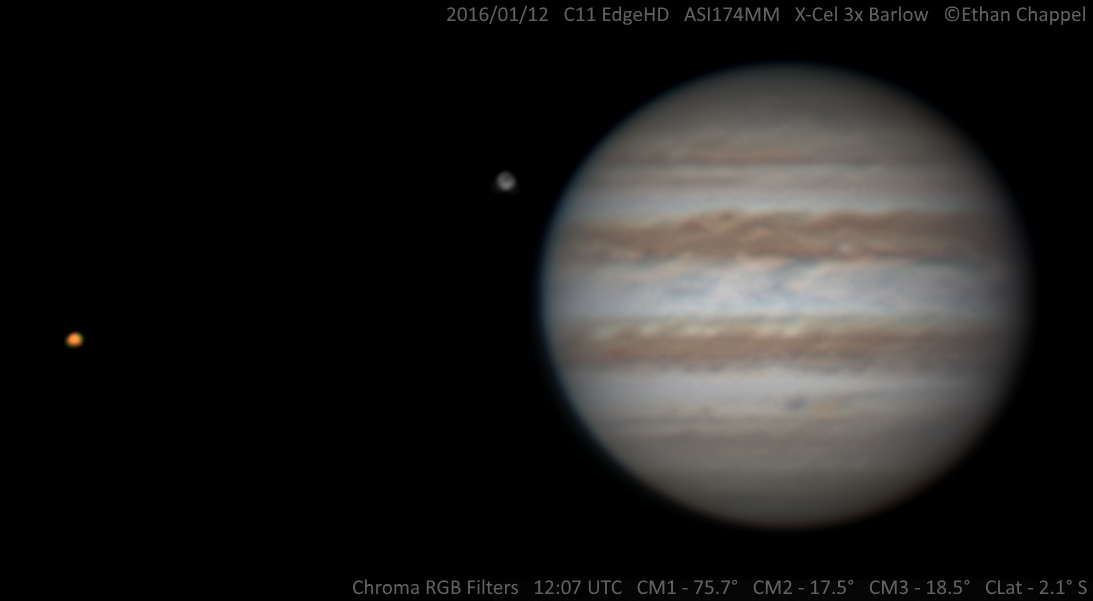
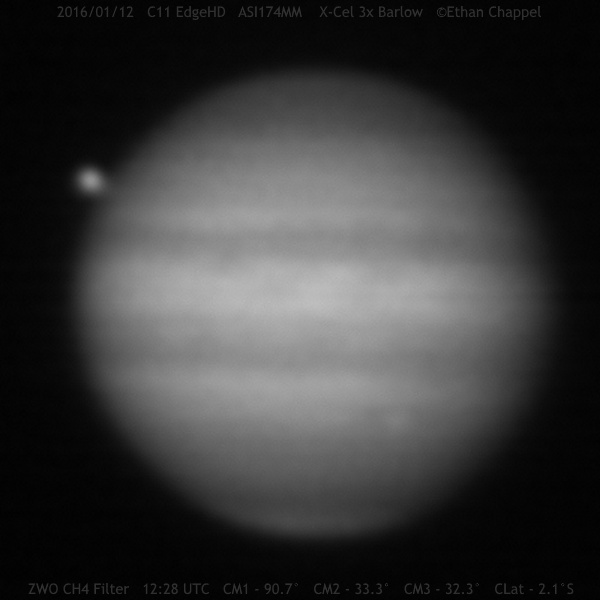
UTC
Managed to squeeze in a first light with the ZWO CH4 filter at the last minute. Unfortunately, I wasn't able to get the amount of time to use the CH4 as I wanted to, but I'm surprised how well it came out considering the capture only lasted two minutes.
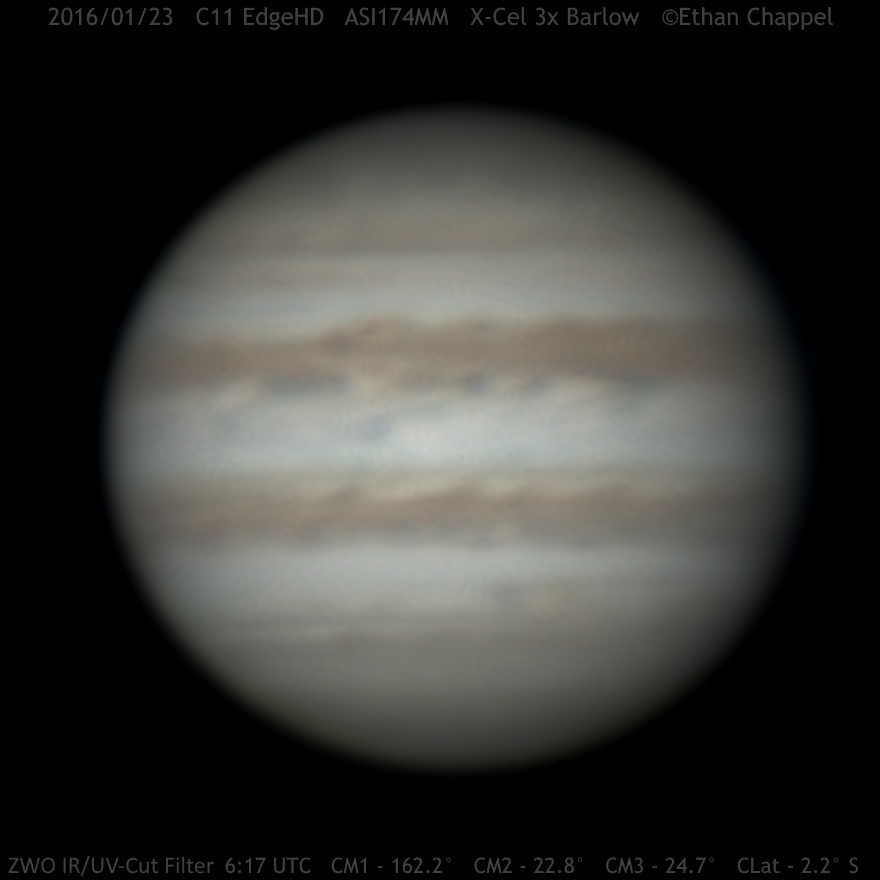
UTC
First light with our ZWO Atmospheric Dispersion Corrector. We stayed up late to image the planet when it was only moderately above the horizon.
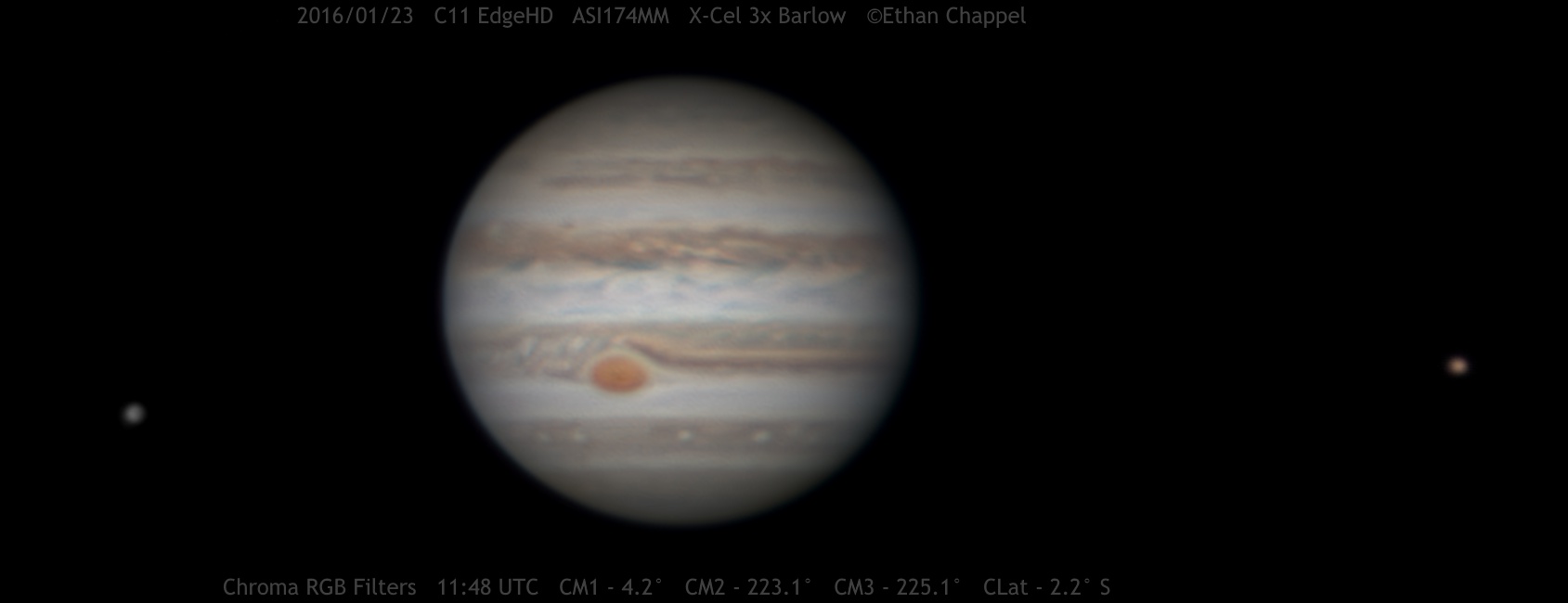
UTC
Seems like the sky's starting to clear up more often. Hopefully, this will keep going! Despite the clearer weather, seeing deteriorated rapidly after the first set. Over two-thirds of the data was thrown out making this image!
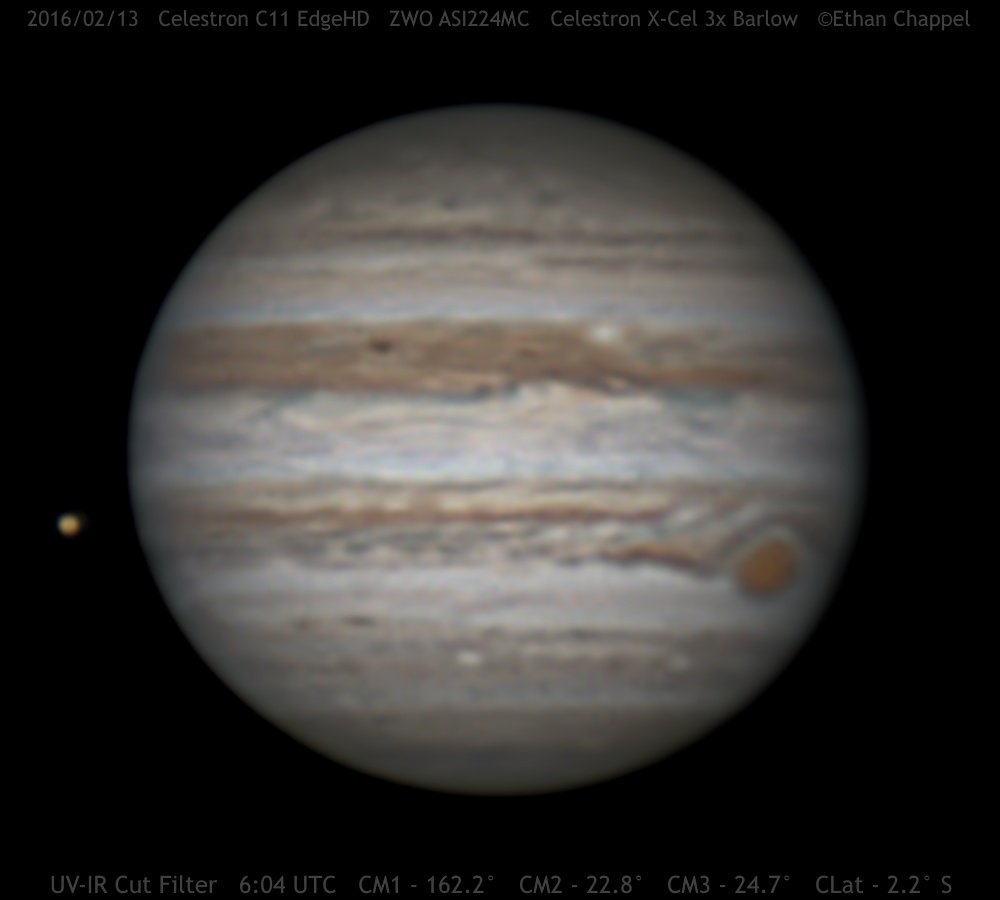
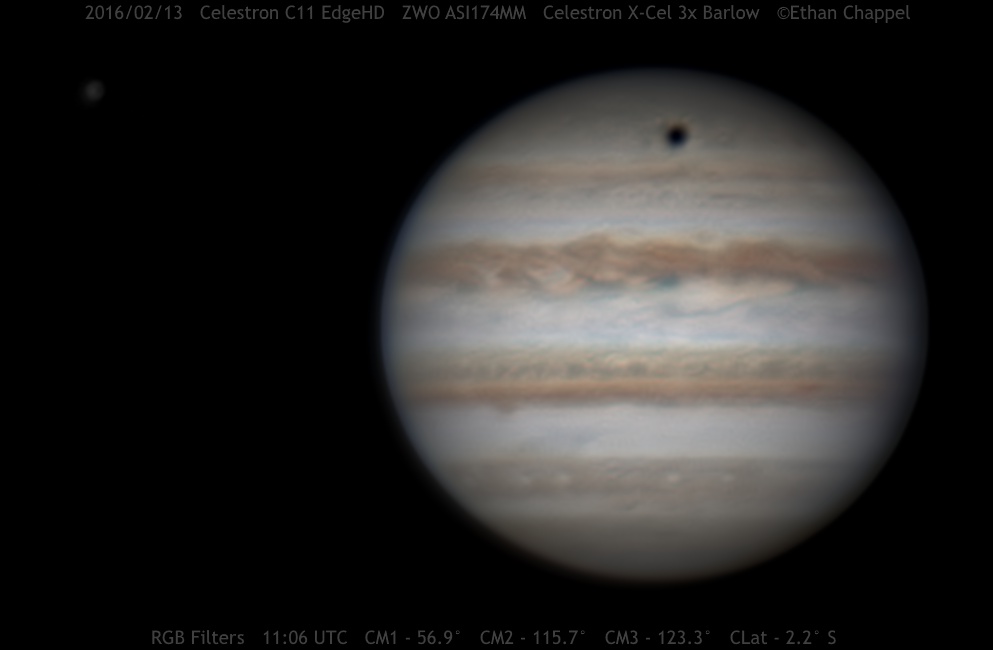
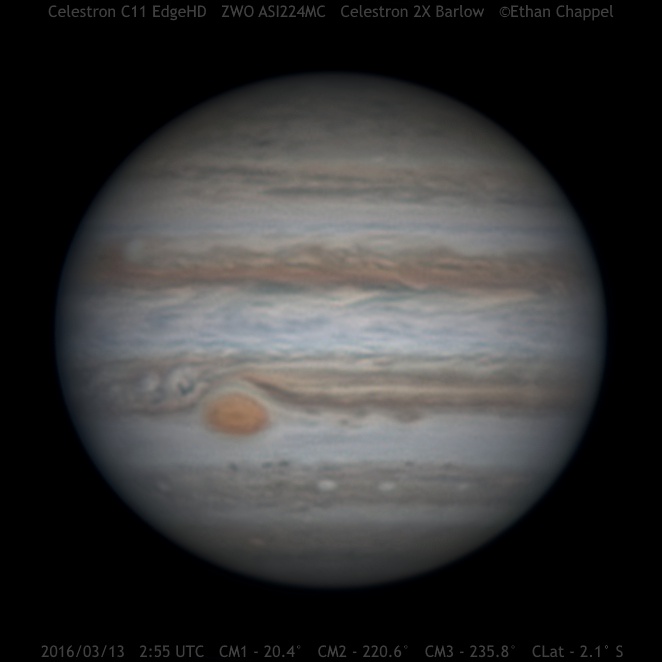
UTC
Here's my first of seven images I took on March 13th. This was probably my best night of imaging I've had up to this point.
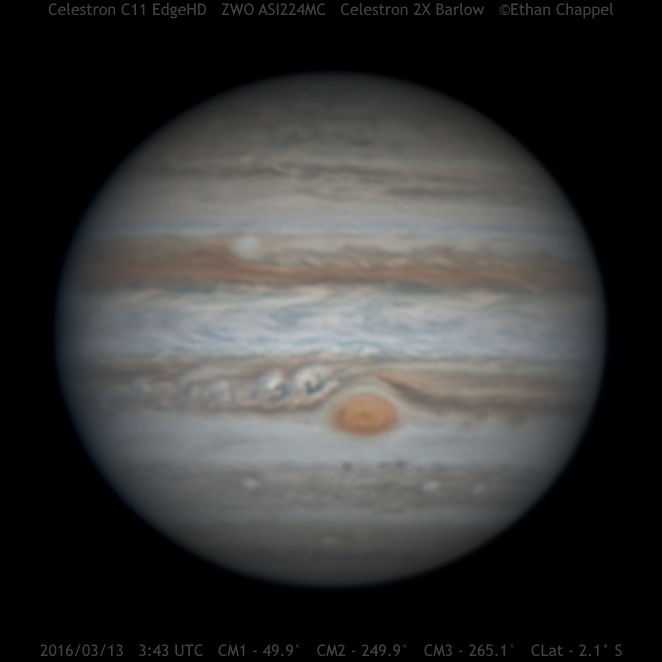
UTC
Another great image taken on the very steady morning of March 13th. The Great Red Spot is at the Central Meridian.
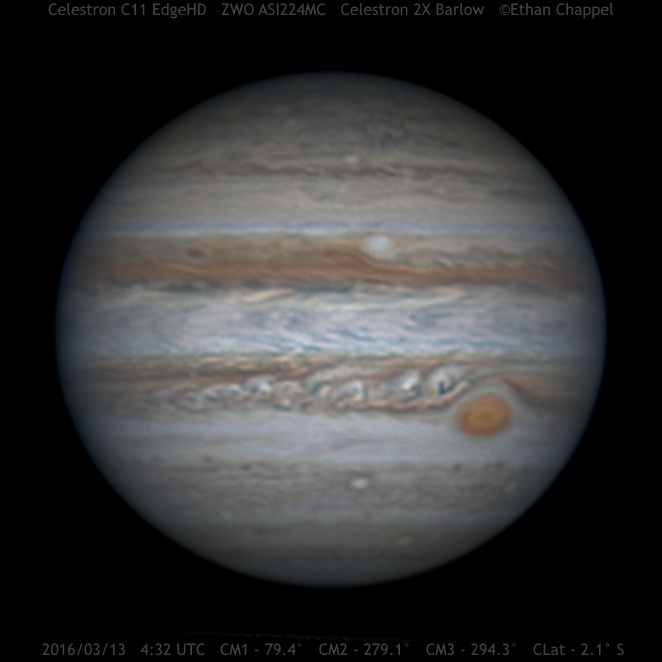
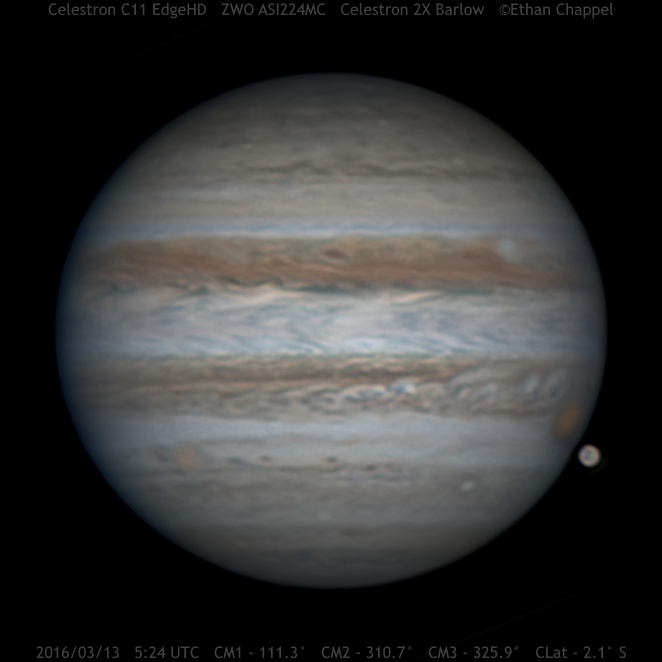
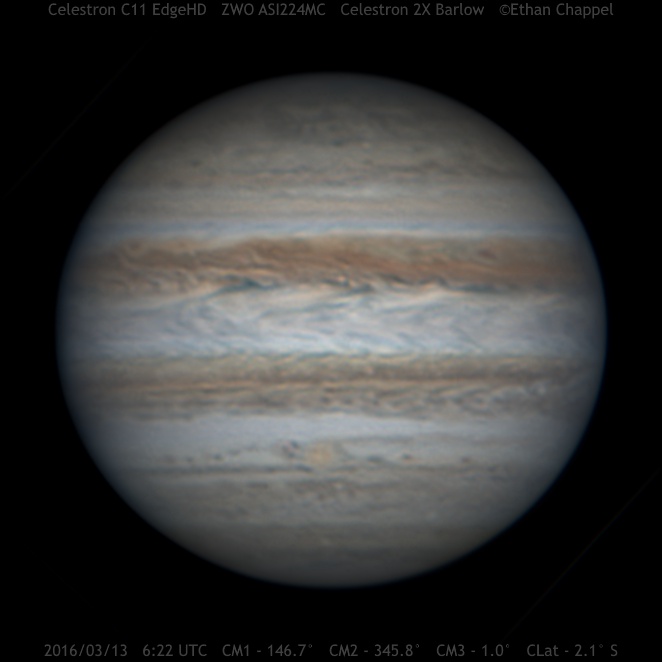
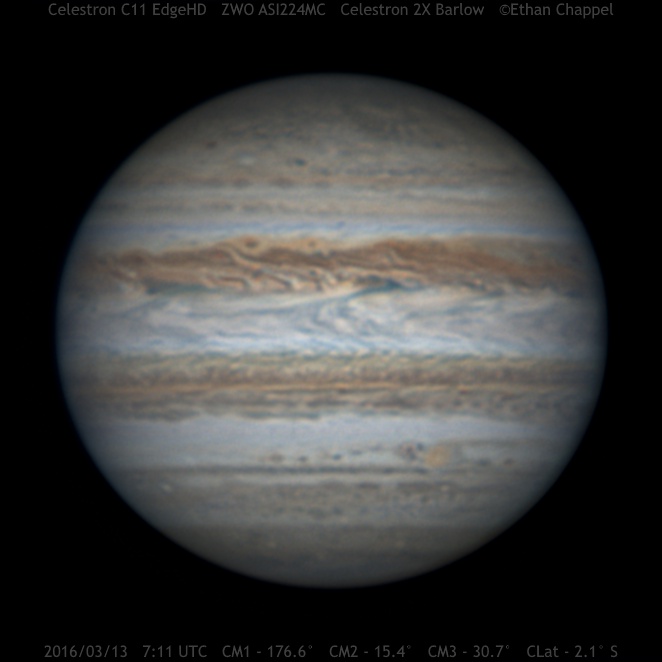
UTC
Probably the sharpest image I've ever captured of the giant planet (or any planet), and this was supposedly "average" seeing!
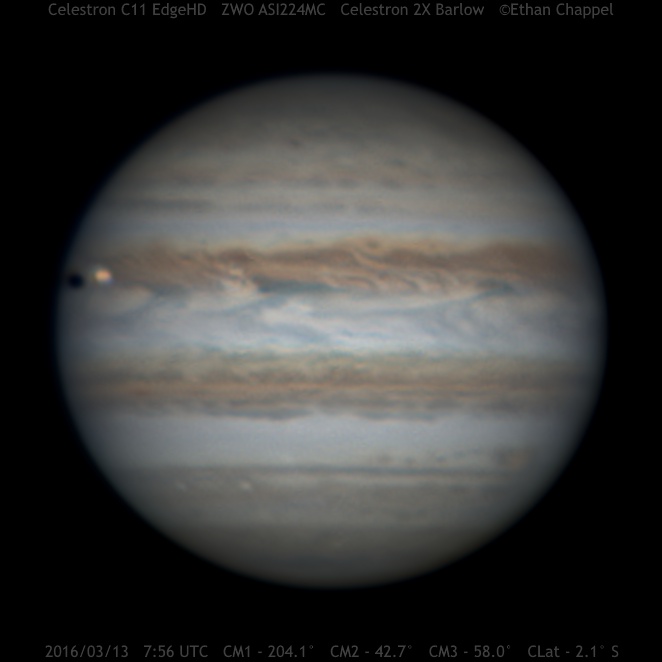
UTC
Last image I managed to get of Jupiter on March 13. Seeing quickly deteriorated after my "sharpest image yet". However, this was still taken through better seeing than 90% of the images I've managed to get in the last six months. I suppose I can't complain!
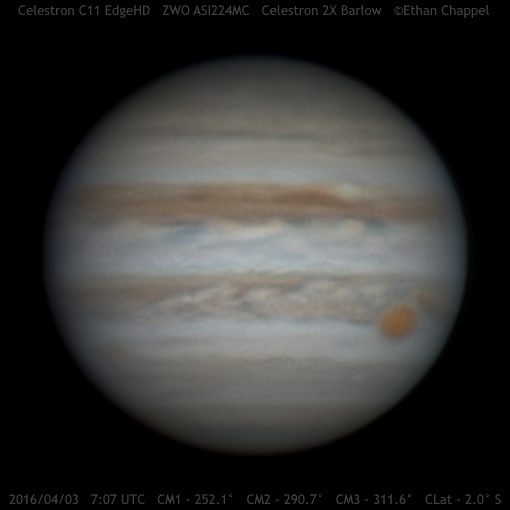
UTC
I have finally been able to take the C8 back out after having to send the Advanced VX to Celestron for repair. Seeing wasn't great, much like March 14, but I'll take it over nothing.

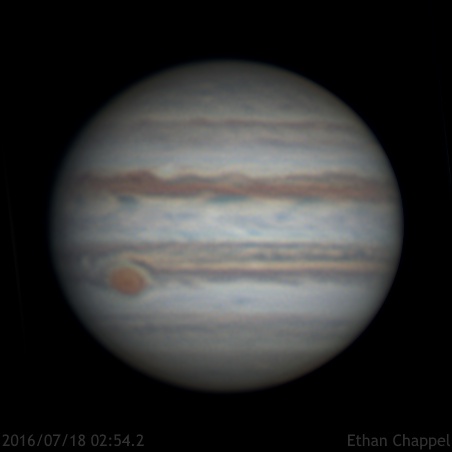
UTC
It's been several months since I've imaged Jupiter. The North Equatorial Belt has gotten thinner than when I last saw it, especially following White Spot Z.